10 Things Hotel Workers Hate Guests Doing & 10 Things They Appreciate

Think hotel staff don’t notice your behavior? Think again. From late-night requests to towel hoarding, workers see it all—and trust us, they remember. Whether you’re a seasoned traveler or a weekend guest, knowing what staff quietly appreciate (and what drives them up the wall) can seriously level up your stay.
Ready to find out what gets you five-star treatment—and what lands you on the unspoken blacklist? Let’s pull back the curtain and hear it straight from those behind the front desk.
1. Ignoring Check-In And Check-Out Times

Arriving hours early or lingering well past noon throws off the entire housekeeping schedule. Staff must scramble to accommodate these timing disruptions.
Hotel check-in and check-out times aren’t arbitrary rules—they’re carefully calculated to allow cleaning staff enough time to prepare rooms properly. When these timeframes get ignored, it creates a domino effect of delays.
2. Leaving Rooms Excessively Messy

Trash scattered everywhere, wet towels piled on beds, and food smeared on surfaces create unnecessary work for already busy staff.
Excessively messy rooms require double or triple the normal cleaning time. While housekeepers expect to clean, they’re not prepared for rooms that look like they’ve hosted a wild party with deliberate disregard for basic tidiness.
3. Being Rude Or Dismissive To Staff

Cold shoulders, eye rolls, or snapping fingers can instantly deflate staff morale. These small acts of disrespect accumulate throughout a shift.
Rudeness affects service quality as demoralized employees struggle to maintain enthusiasm. Common offenses include talking down to staff, interrupting them mid-sentence, or treating them as invisible while on phones.
4. Making Unrealistic Demands

Requesting room upgrades during peak season or demanding services at 3 AM crosses reasonable boundaries. Staff want to please guests but have limitations.
Unrealistic demands include expecting instant room readiness regardless of arrival time or requesting amenities not offered by the property. Hotel policies and staffing constraints make some requests simply impossible to fulfill.
5. Not Tipping Housekeeping
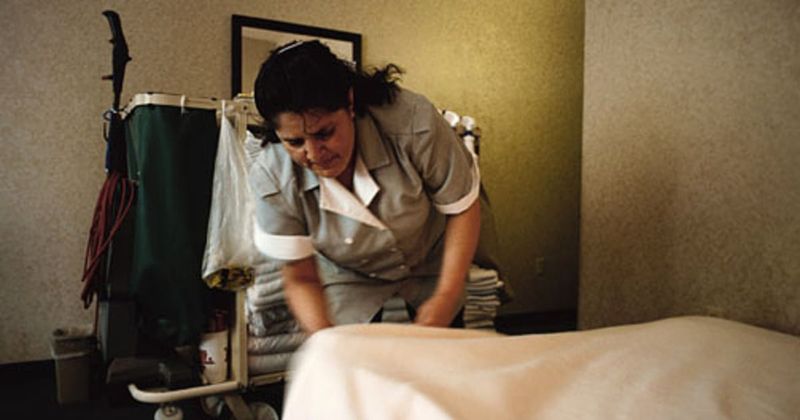
Daily room refreshes require intense physical labor often overlooked by guests. A few dollars makes a meaningful difference to these hardworking individuals.
Housekeeping staff typically earn minimum wage while performing physically demanding work. Unlike servers who interact with guests directly, housekeepers work behind the scenes, making their efforts easy to forget but no less deserving of appreciation.
6. Smoking In Non-Smoking Rooms
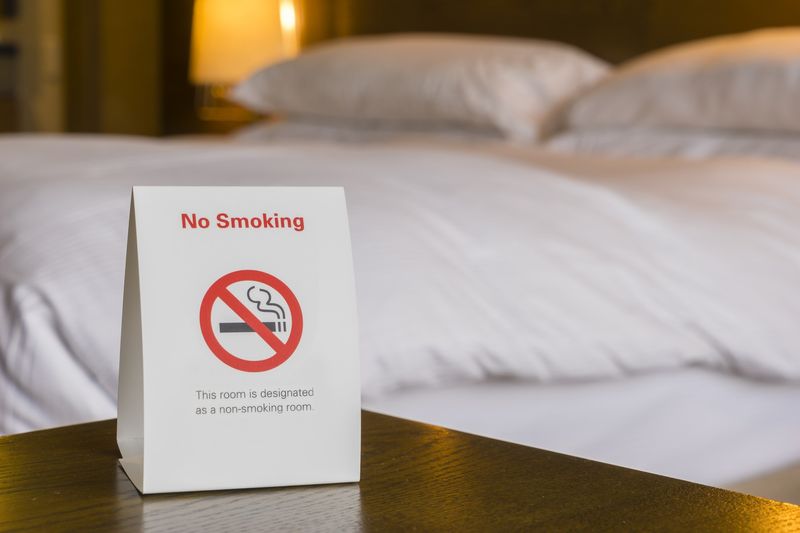
The lingering odor requires special cleaning procedures and keeps rooms out of inventory. One cigarette creates hours of extra work and potential lost revenue.
Smoking indoors triggers fire alarms and endangers other guests. Hotels often charge hefty cleaning fees ($250-500) because removing smoke residue requires deep cleaning of curtains, carpets, and upholstery—far beyond standard housekeeping.
7. Sneaking In Extra Guests
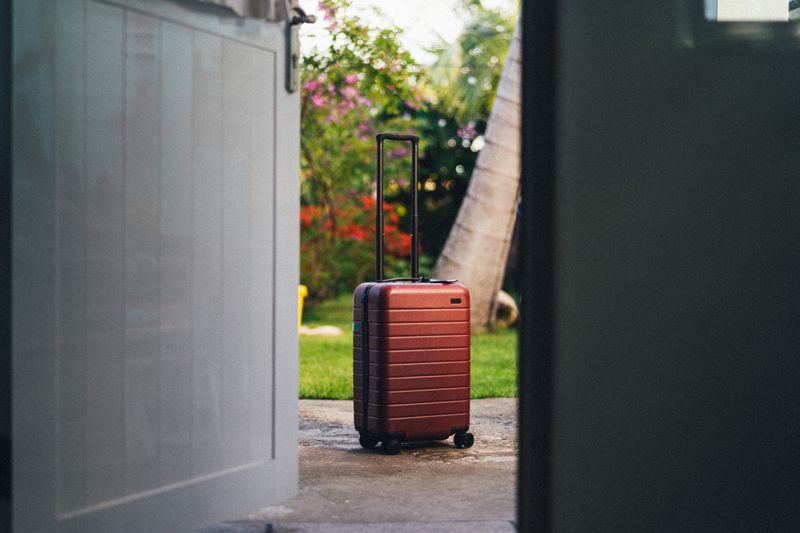
Those “just visiting” friends who stay overnight strain resources and security protocols. Extra bodies mean extra towel usage, water consumption, and breakfast servings.
Hotels set occupancy limits for safety reasons—including fire codes and emergency evacuation plans. Sneaking in additional guests creates accountability problems and undermines the honest relationship between businesses and customers.
8. Hoarding Or Stealing Hotel Items

Small toiletries are yours to take, but bathrobes, towels, and decorative items aren’t complimentary souvenirs. Missing items must be replaced, driving up operational costs.
Some guests strip rooms of everything from hangers to coffee makers. Hotels track inventory losses and may add charges to credit cards when expensive items disappear, creating awkward situations for everyone involved.
9. Calling The Front Desk For Obvious Questions

Front desk staff juggle numerous responsibilities simultaneously. Repeatedly asking about information clearly displayed in room directories diverts attention from urgent matters.
Wi-Fi passwords, breakfast hours, and checkout procedures are typically provided in welcome packets or room folders. A quick glance at these materials before calling can save time for everyone.
10. Leaving Negative Reviews Without Addressing Issues On-Site

Most problems can be resolved immediately if brought to staff attention. Discovering complaints online later feels like a missed opportunity to make things right.
Hotel managers monitor reviews closely and take criticism personally. When guests leave without mentioning issues, staff lose the chance to correct problems and improve experiences—both yours and future guests’.
11. Saying “Thank You” And Acknowledging Their Work

Simple words of gratitude brighten a housekeeper’s day after cleaning dozens of rooms. Genuine appreciation creates memorable moments amid repetitive tasks.
Staff remember kind guests who take two seconds to say thanks. These brief interactions humanize what can otherwise feel like invisible work, reminding employees that their efforts truly matter.
12. Following Hotel Policies

Guests who respect noise curfews and amenity guidelines make everyone’s job easier. No explanations needed, no awkward enforcement required.
Policy-following guests create a peaceful atmosphere for fellow travelers. When pool hours, pet restrictions, and smoking rules are observed without reminders, staff can focus on enhancing experiences rather than policing behavior.
13. Leaving A Tidy Room
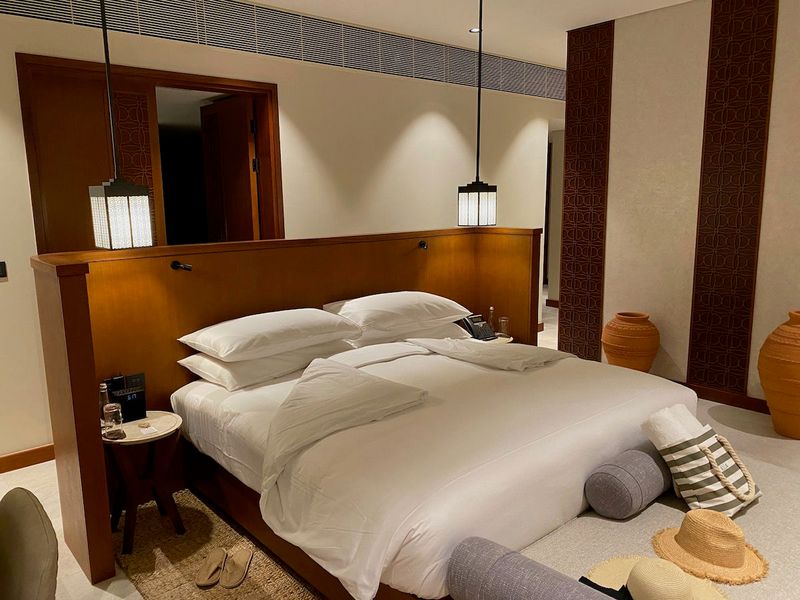
Gathering used towels in one spot and placing trash in bins shows thoughtfulness. Nobody expects hospital corners, just basic consideration.
Considerately used rooms have personal items organized and garbage disposed of properly. These small efforts demonstrate awareness that real people will clean the space after departure, making their job significantly less stressful.
14. Being Patient During Busy Times

Wedding weekends and conferences create inevitable delays. Guests who remain calm during these rushes stand out positively to stressed staff.
Patience during high-volume periods allows workers to maintain focus rather than managing emotional situations. Staff notice and remember those who smile understandingly during hectic times, often finding ways to show appreciation later.
15. Giving Compliments Or Positive Feedback

Mentioning staff by name in surveys creates ripple effects of goodwill. Specific compliments often reach management, potentially influencing performance reviews and promotions.
Positive feedback energizes employees in ways generic interactions cannot. When guests acknowledge extra efforts—spotless bathrooms, helpful directions, or speedy service—it validates the pride many workers take in their hospitality roles.
16. Tipping Generously When Possible
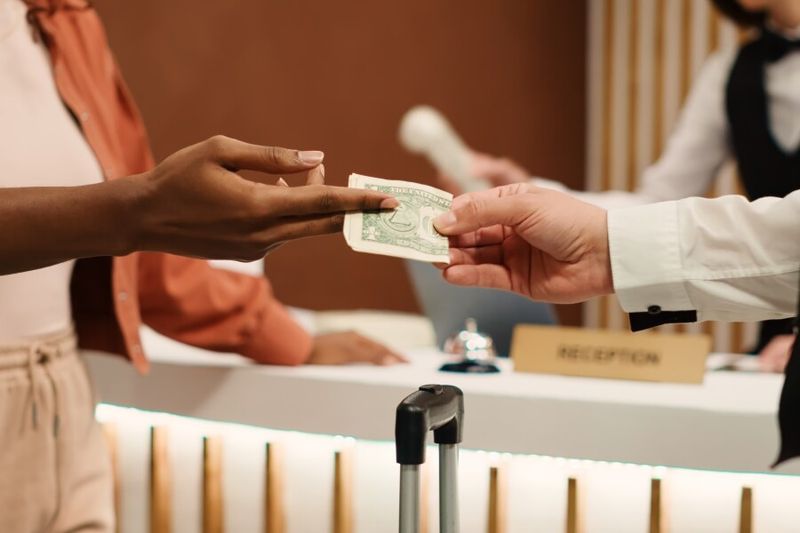
Generous gestures go a long way in the hospitality world. Whether it’s the housekeeper tidying your room or the server delivering your late-night snack, showing appreciation with cash can make a real difference.
These workers often rely on gratuities to supplement modest base pay, and small acts of generosity can truly brighten their day. If you received great service, offering a few extra dollars is one of the most meaningful ways to say thanks.
17. Reporting Issues Calmly And Respectfully
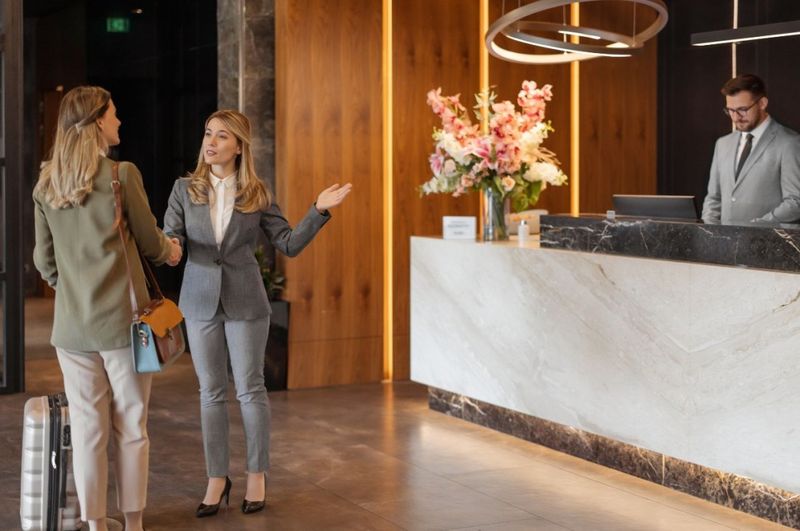
Problems happen at even luxury properties. Addressing concerns without accusatory tones creates collaborative problem-solving rather than defensive reactions.
Respectful reporting of issues—like malfunctioning air conditioners or noisy neighbors—enables staff to focus on solutions. The approach matters as much as the content when communicating problems that need attention.
18. Reusing Towels And Following Eco-Friendly Practices
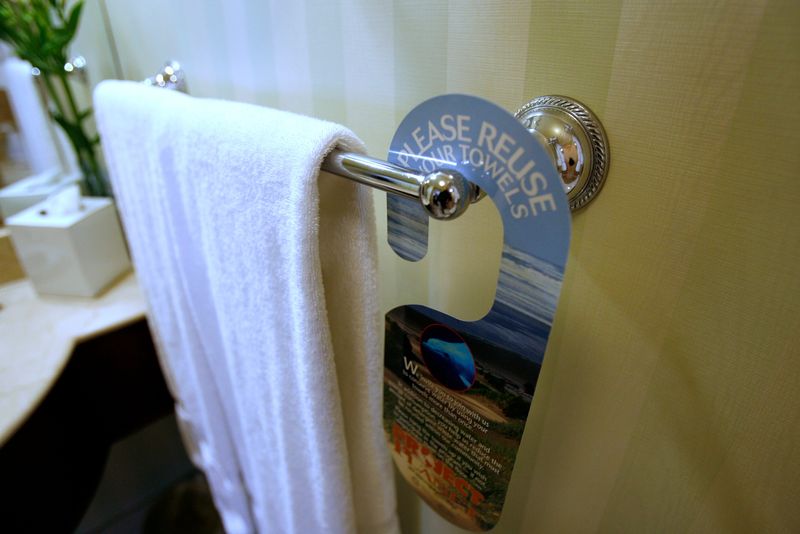
Hanging towels for reuse lightens the laundry burden significantly. Environmental consciousness reduces both physical workload and resource consumption.
Staff notice guests who participate in green initiatives. These small actions demonstrate respect not just for the planet but for the people who would otherwise handle additional laundry or replace barely-used amenities.
19. Checking In And Out On Time
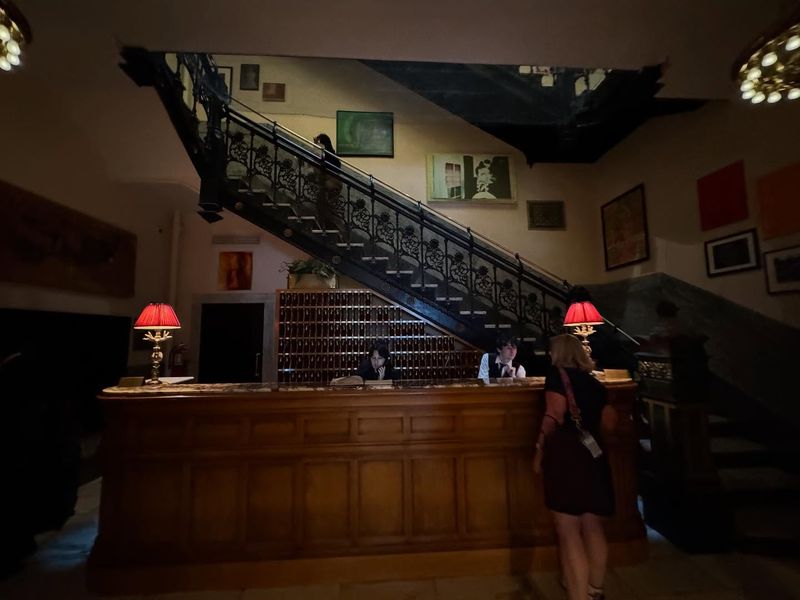
Punctuality allows housekeeping teams to work systematically through their assignments. On-time departures prevent bottlenecks that cascade throughout the day.
Timely check-outs enable rooms to be prepared properly for incoming guests. This consideration helps maintain the quality standards hotels strive for and prevents staff from having to rush through cleaning procedures.
20. Treating All Staff With Equal Respect

Acknowledging maintenance workers and kitchen staff creates a culture of dignity. Behind-the-scenes employees notice when guests see them as essential rather than invisible.
Equal respect means greeting housekeepers in hallways just as warmly as front desk managers. This inclusive courtesy recognizes that memorable stays result from everyone’s contributions—from the person who prepared your room to those who cooked your breakfast.
